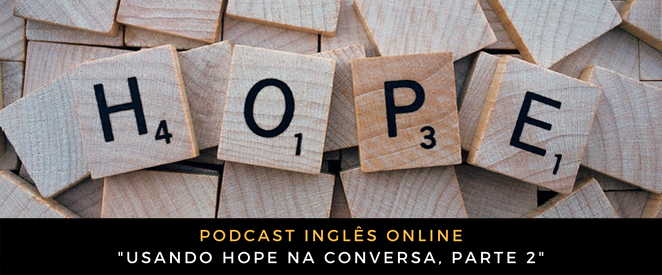Hey there !! watz up..
I was looking for english conversation sites and i found inglesonline.com.br. Your english is so clear and clean to understand, so is very good to learn and practice my hear. So keep on….
See http://www.eslpod.com and get some ideas, maybe this site will help you.
Bye Ana..
Marzio
Olá Marcio,
Eu dei uma olhada em algumas fontes de gramática, e a maioria delas traz exemplos desse tipo:
—> By the time we get to the shops, they will be closed.
—> By the time she arrived, other people had gone home.
Que são diferentes do que eu usei.
Esse site
http://grammar.ccc.commnet.edu/grammar/sequence.htm
…traz um exemplo com a mesma estrutura que eu usei: By the time they have graduated + uma frase no Future Perfect
Posso te dizer que By the time I/you/etc have done é uma construção bem frequente na língua. Vc pode ver vários exemplos se colocar a frase no Google, e, para aumentar a chance de encontrar exemplos corretos, coloque lingua—> inglês e região—> EUA (não quer dizer q todos os exemplos vão estar corretos, mas a maioria está)
Ana, Estava escutando e lendo o transcript do seu podcast “HOPE 2” e ví a seguinte frase: “by the time you’ve finished listening to this episode you’ll have picked up a couple of new words and expressions”. “A frase correta não seria: By the time you finish listening to this episode you’ll have picked up a couple of new words and expressions” By the time inicia uma time close e assim o verbo não tem que ta no simple present?
Marcio
nice article, keep the posts coming
Hi everyone, great to know that you’ve enjoyed it.
Dirant – Thanks for letting us know (= contar isso pra gente), that’s awesome!!
Everyone, it is a pleasure and it’s also very rewarding to do the podcasts (<—veja q estou tratando “podcasts” como uma atividade que faço! Se eu quisesse dizer “produzir, criar os podcasts” eu diria make the podcasts)
First of all I’d like to congratulate you for your podcasts. Actually I’d like to congratulate you for your entire blog although I must confess you that your podcasts are the stuff that most interess me. Since I learned of your site, my prospects of learning English faster have increased a lot. Your tips are worth a lot for all those who just like me are looking forward to learn English quickly and deeply.
Very good, I’m learning a lot with these podcast.
This podcast is very nice!
I learned a lot. I have various podcasts in phone and i listen everyday.Have being very useful.
Thank you very much.
congratulations, I learn a lot whith these podcasts.
(I’m sorry if i write wrong)
Hi Marcos – welcome to Twitter!! It’s addictive…
Carlos – thanks, never too late! ![]()
Hi,Ana i’m late to congratulation you about this podcast i hope it’s not too late, thank you for your time.
all the best
Oh! Thank you Ana, I’ve never heard about this website,
I’m gonna check it out.
Once again, Thank you… I thought I was never going to talk to you. LOL
PS, I’ve just got a Twitter account. I’m one of your followers. o/ See you around! Bye.
Hi Marcos – well congratulations, your first piece of writing is great!
And, good for you re. your listening habit.
That’s gonna make a world of difference in your progress (I’d guess it’s already showing in your writing) – and are you familiar with the website italki? You could probably find someone willing to chat in EN in exchange for some chatting in PT..
Well, I’m gonna try some… I’ve got to say that is the first time I’m writing in english. I have been listening to many podcasts (including yours…) in english for about 5 or 6 months…
Hopefully, I will be able to comunicate to anyone in english as soon as possible. I’m learning a lot with your tips Ana. You’re great. I like you.
A hug!
Hi, you two… thanks! Any examples you’d like to give?
Thank you for the podcast. It’s very good.
Congratulation on your podcast. It’s nice to read!


